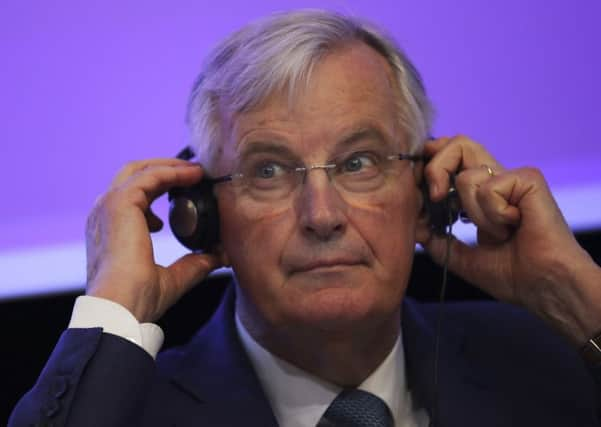Brexit: Michel Barnier rules out backstop time limit in May blow


In a statement to the House of Commons on Monday, Mrs May made clear concessions on the backstop are central to her hopes of overturning last week’s 230-vote rejection of her Withdrawal Agreement.
An amendment tabled by Tory backbencher Andrew Murrison, setting a hard deadline of 31 December, 2021 to end the arrangement, is thought to be viewed positively by Downing Street, though a spokesman declined to say if the government will back it.
Advertisement
Hide AdAdvertisement
Hide AdIf the amendment succeeds in a vote by MPs on 29 January, it is thought likely the Prime Minister would offer it to Brussels as proof changes to the backstop might be enough to secure parliamentary ratification of the Withdrawal Agreement reached in November.
But in an interview with three European newspapers, Mr Barnier made clear a time-limited backstop is regarded by the EU as “useless”.
“The question of limiting the backstop in time has already been discussed twice by the European leaders, in November and in December 2018,” Mr Barnier told Le Monde, Rzeczpospolita and Luxemburger Wort.
“This backstop is the only one possible because insurance is no longer operational if it is for a limited time. Imagine if it were to be limited in time and the problem arose after expiry: it is useless.”
He suggested that the backstop, intended to keep the Irish border open after Brexit, would become a “relative” issue if Mrs May enabled an “ambitious” future trade deal by relaxing her negotiating red lines.
The Brexit negotiator also poured cold water on the prospect of the UK securing an extension to the two-year negotiation period under the EU’s Article 50 process.
Noting that any request for an extension would have to be approved by all 27 remaining states, he said: “If this question were to be asked, the heads of state and the governments would ask three questions.
“For what reason? For how long? They would also have a third concern: that this possible prolongation might interfere with the democratic working of the European elections [due in May].”